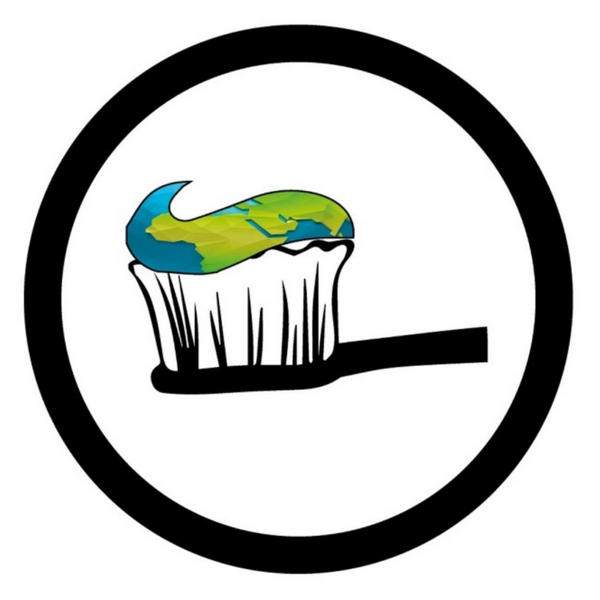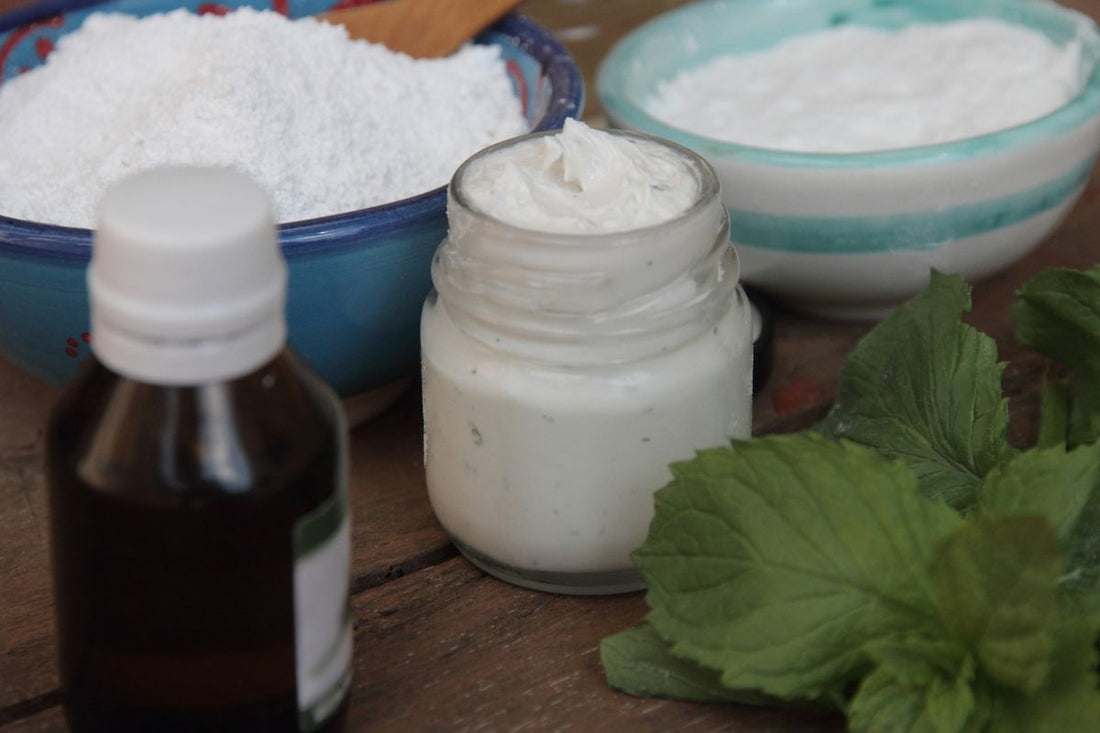While toothpaste is the go-to product for keeping your teeth clean, there is a growing interest in natural alternatives due to concerns about the chemicals traditional toothpaste contains, and its environmental impact. In this article, we explain why people have been avoiding traditional toothpaste, and share our top picks for natural alternatives to toothpaste for those who also want to make the switch.
The Toothpaste Dilemma
Traditional toothpastes often contain harmful ingredients, such as sodium lauryl sulphate, artificial colours and microbeads (microplastics), that contribute to water pollution and hurt our fragile marine ecosystems.
Microbeads, in particular, can impact our entire food web. These tiny plastic particles are ingested by fish, plankton and larger organisms, which end up getting eaten by humans too!
 Image Credit: Beat the Microbeads.
Image Credit: Beat the Microbeads.
Traditional toothpaste tubes are also made from non-recyclable materials like plastic and aluminium, which end up in landfill and contribute to plastic pollution. Although more toothpaste tubes are now being made of recyclable HDPE plastic, many local authorities still don't accept toothpaste tubes via kerbside recycling schemes.
For these reasons amongst others, more people are seeking out natural alternatives to traditional toothpaste.
Natural Alternatives to Toothpaste
Before we get stuck in, it's important to note that many natural toothpastes don’t contain fluoride. Fluoride is completely safe to use, however some individuals prefer not to use it as part of their dental routine due to the fact it can be toxic when ingested in (very) large amounts.
When natural toothpastes don’t contain fluoride, they will often use alternative cleaning agents like calcium fluoride or calcium carbonate, which can help remove surface stains from teeth. However, this won’t be as effective at removing tartar, reducing plaque and protecting your teeth and gums.
Without further ado then, let's get our teeth (and gums!) stuck in to the top natural alternatives to toothpaste.
1. Coconut Oil
Coconut oil, extracted from the kernels of coconuts, is often used as part of a technique called oil pulling. Oil pulling involves switching the oil around your mouth (and between the gaps in your teeth) for 15-20 minutes to "pull" out and remove bad bacteria.
Studies have also shown that coconut oil has antimicrobial properties, which could help to reduce plaque formation and gingivitis inflammation. The reduction in gingivitis can be attributed to decreased plaque accumulation and the anti-inflammatory, emollient effect of coconut oil.
In addition to its cleaning properties, coconut oil might also offer a natural solution for dry mouth. Clinical trials are still in process, but one existing study explained that relief from coconut oil may be related to its ability to “coat” the mouth, forming a barrier to keep mucosal surfaces (the "skin" inside the mouth) moist. A dry mouth significantly increases the risk of tooth decay and other oral diseases, so having enough saliva is important for tooth and gum health.

2. Baking Soda
Baking soda, or sodium bicarbonate, is mildly abrasiveness which means it helps to remove plaque build-up and surface stains from your teeth without causing excessive wear on tooth enamel.
Baking soda also helps balance the pH level in the mouth, creating an environment that can help to reduce cavity-causing bacteria. However, keep in mind that it doesn't contain cavity-fighting fluoride.
Lots of natural toothpaste recipes incorporate baking soda as a key ingredient, but it is often combined with essential oils, such as peppermint, for added flavour and a nicer taste!
3. Activated Charcoal
Activated charcoal, derived from coconut shells or wood, is another popular alternative to traditional toothpaste. While you don't want to scrub actual charcoal on your teeth, it is often used as part of natural, charcoal-infused toothpastes, which can help to remove surface stains on your teeth.
However, more research is needed on the long-term effects of charcoal toothpaste. For example, we know that charcoal toothpaste is too abrasive for everyday use and that most brands do not contain fluoride, which otherwise helps to protect your teeth against cavities.
4. Dental Powder
Tooth powder have been around for thousand of years, with ancient people using ingredient such as burnt eggshells, crushed animal bone ash and oyster shells to create powders that are able to remove mouth odour, and clean and polish teeth.
Nowadays, tooth powders tend to be made from baking soda, charcoal powder or salt. Some people also add essential oils for flavour and benefits, such as clove or peppermint oil.
These powdered formulations are mixed with water to create a paste, which is used as you would a traditional toothpaste. Research suggests that toothpaste powder is more effective at removing stains and plaque than toothpaste. But there is a downside - powders don't typically contain cavity-fighting ingredients, such as fluoride, and many be too abrasive for regular use.

5. Clays
Bentonite clay and kaolin clay are gentle abrasives that can help cleanse and remineralize teeth. It is thought that when bentonite reacts with water (and saliva) it absorbs the dirt and particles that build up in the mouth, a bit like a sponge. Anecdotal claims also suggest that bentonite clay can help to whiten teeth, but more scientific research is required to back up these claims.
6. Toothpaste Tablets
Despite the fact this one has toothpaste in its name, it's far from the traditional toothpaste you see in the supermarket! Toothpaste tablets are a plastic-free alternative to toothpaste that has similar ingredients to the traditional paste, but avoids preservatives, harmful chemicals, and plastic.
To use, you chew a tablet to break it down into a paste, brush as normal and then spit - it's simple and effective!
The best part? Toothpaste tablets can contain fluoride, which means you don't need to worry about its absence as with other natural alternatives.

🪥
Brush Fresh Co. is founded and run by a group of UK-based dentists, who specialise in environmentally-friendly and sustainable dental products. From biodegradable bamboo toothbrushes to zero waste toothbrush tablets, our product range has been designed to put both your dental health and the environment first. For more information and dental care advice, head over to our blog page or get in contact with us here.

